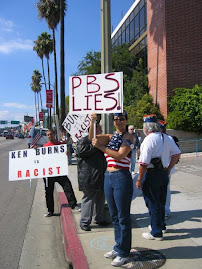
“Frankie, vete a la tienda y compra (go to the store and buy) . . . . . “Un carton de leche” (a half-gallon carton of milk), sour cream, unas papas (potatoes), “a pound of carne molida, extra lean” (hamburger). Vivid in my memory is the day I crossed the United Farm Workers’ union picket line boycotting a South Oxnard market in the early 1970s. I must have been 10 years old. As I approached a crowd, made larger in their holding intrepid red and white flags with a defiant black eagle at the center, I was struck by the drama of activism by a people, my people, that I never witnessed demonstrate in such a way. I did not want to enter the small neighborhood market for I felt, almost instinctively, sympathetic to their protest; at the same time I feared the wrath of mom for not fulfilling “mi mandado” (my errand). As I gazed at the brown faces of the picketers I considered “grandpa” and “grandma”, long time citizens, one by birth the other naturalized, on dad’s side and abuelita (grandmother) on my mother’s who picked and packed lemons, lettuce, plums, and other crops throughout California for much of the 20th century. Nonetheless I crossed the line.
Although I never picked a fruit or vegetable for a living, as a Chicano born and raised in Ventura County I lived in a cross-cultural community of agricultural workers. I remember visiting the homes of Filipino, Japanese, and Mexican families and viewing mud-caked trucks and boots in the driveway of homes. My family regularly received bounties of delicious strawberries, lemons, and celery gratis from our friends and neighbors; what could not be consumed we redistributed. The exchange of free produce strengthened communal bonds. I also eavesdropped on adult conversations sharing the experiences of work in the packing sheds and canneries, peppered with the word la union (the union).
While in graduate school I interviewed my grandmothers about their lives. They recounted the challenges they faced as women, workers, and mothers. Grandma talked about the freedom employment at the Oxnard Seaboard packinghouse afforded her in regards to escaping the isolated confines of the home; grandpa allowed her to work after my aunts and uncles left the nest. Mi abuelita explained how she migrated to the US as a 45 year old single mother while toeing three young daughters from Chihuahua, Mexico. A family friend, married to a Filipino, assisted my abuelita’s entrance into the land of sun and money—more sun than money. Although mi abuelita never returned to Chihuahua she referred to it as mi tierra natal (my homeland), along with the heroics of Pancho Villa. Both grandma and abuelita also spoke of la union.
Grandma related the family’s eviction from Rancho Sespe during the countywide citrus strike of 1941. Pickers and packers of the Agricultural and Citrus Workers Union (ACWU) desired union recognition, a ten cent raise in hourly pay from 30 to 40 cents (adjusted for inflation translating to $5.75), and compensation for la hora mojada or wet time—the idle morning period crews spent in the orchards waiting for fruit to dry before its harvest. Being that grandpa was a union organizer, the Barajas family, like many other families who for generations lived in the company housing of Rancho Sespe, suddenly found themselves homeless. Fortunately, Franklin Roosevelt’s Farm Security Administration established tent cities (nicknamed Teaguevilles after the Limoneira owner Charles Teague) for displaced citrus workers. Meanwhile, los missourees, Dust Bowl migrants, took over their homes and jobs. In this story, ACWU leader “Pedro” Pete Petersen’s name is in an important figure in this family’s story of labor activism.
Abuelita’s historical deposition, on the other hand, expressed the sense of empowerment Cesar Chavez instilled in her. In fact, abuelita also became a UFW organizer while working on a Japanese owned farm. With tears in her eyes, her daughter expressed the sense of humiliation when growers required strawberry pickers to constantly blow whistles to prevent them from eating the fruit as they worked. At one point, abuelita fired back at an overseer at one ranch in stating that she was a human being, not an animal. When I spoke to abuelita about Cesar Chavez she spoke of him with the same reverence as when she talked about Pancho Villa—a person who championed the cause of the underdog.
The history of farm workers struggling for dignity in the form of a living wage and humane working condition is long and highlighted by UFW campaigns in the Southwest. And although the five year long farm worker strike in Delano dominates the state’s memory, lesser known rebellions took place throughout the state. Indeed, in 1974 the UFW launched a 4 month long strike against the strawberry growers of Ventura County. The collusion of local public agencies with agribusiness evidenced itself when sheriff’s department helicopters attempted to disperse UFW picket lines by hovering directly above protestors; in fact, one drifted so low a UFW protester retaliated by hurling rocks at it. This, however, only afforded law enforcement the pretext they needed to aggressively arrest him and others who came to his defense. Protest has a price.
As I drive by the fields of the Oxnard Plain on my way to work every day, I muse upon the challenges of men and women who labor in them today and ask myself: Do their families enjoy improved opportunities than those of my grandparents? Do they earn a living wage? Are they adequately protected from the effects of pesticides? Can they form a union without the terror of being fired or deported? I do not know the answer to some of these questions; but I am sure of one thing. If a UFW picket line forms at my grocery store I will not cross the line. I will join it.
fpb
